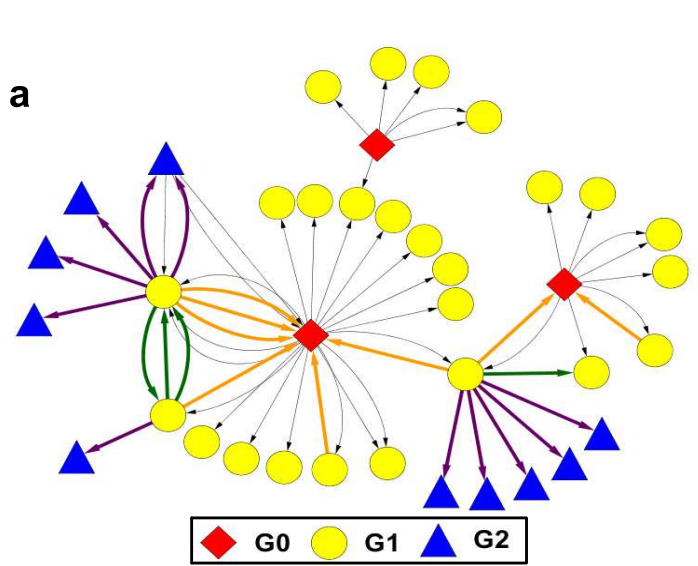Microsoft’s 12-year-old Windows XP operating system powers 95 percent of the world’s automated teller machines, according to NCR,
the largest ATM supplier in the US. While the idea of Windows powering
ATMs may surprise consumers, XP runs in the background powering the
software that bank customers interact with to withdraw money. An
upcoming Windows XP support change from Microsoft means ATMs will need
to be upgraded and modified throughout 2014. Bloomberg Businessweek reports that
the US has 420,000 ATMs, and the majority of them run XP and face a
support cutoff from Microsoft soon. On April 8th, Microsoft plans to end support for Windows XP, leaving businesses still using XP, and 95 percent of ATMs, open to security and compliance risks.
Information & Applied Knowledge
Tuesday, January 21, 2014
Monday, January 20, 2014
Around the World, Net Neutrality Is Not a Reality
In much of the world, the concept of “net neutrality” generates less public debate, given there’s no affordable Net in the first place.
- By David Talbot on January 20, 2014
Net neutrality—the idea that all Internet traffic should generally be treated equally—suffered a setback last week when a federal court struck down the U.S. Federal Communications Commission’s latest regulatory effort (see “Net Neutrality Quashed: New Pricing Schemes, Throttling, and Business Models to Follow”).
Pro-neutrality types have worried that a few giant companies will end up controlling, or at least mediating, the Internet experience for much of the population because of special deals they’ve struck with Internet providers for prioritized or subsidized data delivery.
Sync Your Files without Trusting the Cloud
The company behind the Bittorrent protocol is working on software that can replicate most features of file-synching services without handing your data to cloud servers.
- By Tom Simonite on January 17, 2014
The debate over how much we should trust cloud companies with our data (see “NSA Spying Is Making Us Less Safe”) was reawakened last year after revelations that the National Security Agency routinely harvests data from Internet companies including Google, Microsoft, Yahoo, and Facebook.
Bittorrent, the company behind the sometimes controversial file-sharing protocol of the same name, is hoping that this debate will drive adoption of its new file-syncing technology this year. Called Bittorrent Sync, it synchronizes folders and files on different computers and mobile devices in a way that’s similar to what services like Dropbox offer, but without ever copying data to a central cloud server.
Google Isn’t the Only One Putting Electronics into Contact Lenses
Google is working on electronics-laden contact lenses to monitor glucose levels for diabetics. Welcome to the club.
January 16, 2014
Eye
electronics: This contact lens made in the secretive Google X labs is
designed to help diabetics by transmitting a feed of the glucose levels
in their tears to a nearby receiver.
Google is developing contact lenses with embedded electronics that can track the levels of glucose in a person’s tears and transmit that data wirelessly to a nearby receiver, an official blog post by Babak Parviz, a leader of the Google Glass wearable computing project revealed Thursday. The device is intended to help diabetics track their glucose levels without drawing blood.
Google Brings Its Smart Assistant to the Desktop
Google looks set to bring its smart, personal data-fueled assistant, Google Now, to the Chrome browser.
January 16, 2014
Helpmeet: The Google Now service uses data from a person’s email inbox, search activity and mobile device location to try to summarize important information.
Google’s smart but personality-free assistant Google Now (see “Google’s Answer to Siri”) is embedded in the latest preview, or “Canary”, version of the company’s Chrome browser. That means that people who use Google Now on their smartphone and, via Chrome, on a Windows or Mac computer, will be informed via a desktop notification about things such as flight delays and sports scores. Google Now chooses those “cards” based on what Google knows from a person’s Gmail account, Web search history and the location of their mobile device.
Thursday, January 16, 2014
How Information Flows During Emergencies
Mining the mobile phone data from 10 million people over 4 years reveals the subtle changes that occur in the flow of information when disaster strikes, say network scientists.

Mobile phones have changed the way scientists study humanity. The electronic records of these calls provide an unprecedented insight into the nature of human behaviour revealing patterns of travel, human reproductive strategies and even the distribution of wealth in sub-Saharan Africa.
All of this involves humans acting in ordinary situations that they have experienced many times before. But what of the way humans behave in extraordinary conditions, such as during earthquakes, armed conflicts or terrorist incidents?
Nest Acquisition Is Like Apple and Google Teamed Up
Google’s Nest acquisition will see a team that builds and polishes technology like Apple given access to the AI power of the search giant.
Google’s newest employee, Nest CEO Tony Fadell, has a big personality and a loud laugh. He likes to talk about Apple. In fact, when I met Fadell and his co-founder Matt Rogers for a profile of their company published last February (see “Control Freaks”), the way he emoted, enthused, and vented about the design, function, and frustrations of consumer technology reminded me of Steve Jobs’s public persona.
Fadell worked with Jobs for years at Apple, leading the creation of the iPod, and along with Rogers he played a major role in birthing the iPhone. Both Nest founders repeatedly told me that their new company was run much like their old iPhone team back in Cupertino and featured many of the same engineers. Fadell told me that Nest came about because working on the iPhone permanently changed his expectations of personal technology. Everything suddenly looked stupid and too complicated, particularly when it came to high-end technology for the home. “These things are brain dead,” he said. “Nest is about making it so simple that it’s empowering for everyone, just like the iPhone did or the iPod did.”
Subscribe to:
Comments (Atom)